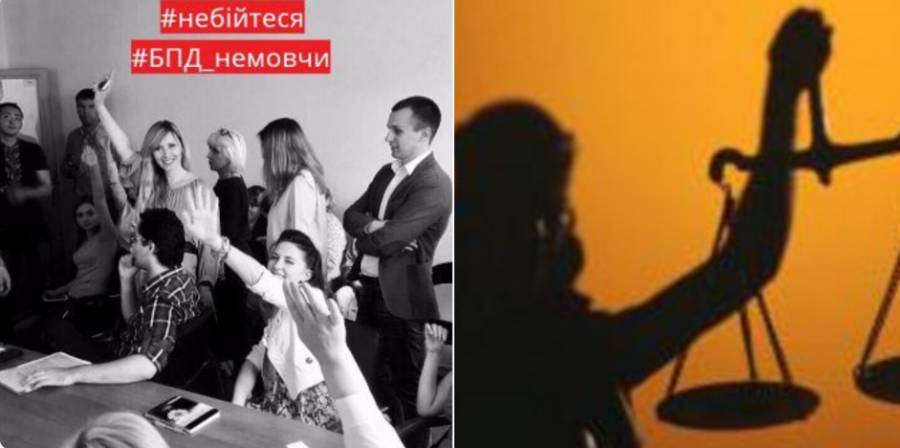Civic Outrage in Ukraine as Justice Ministry Rigs Vital Competition

Ukraine’s main association of lawyers and different civic organizations have sounded the alarm over a supposed competition which, they believe, was heavily slanted to get the result wanted by the Justice Ministry. They have called for the results to be annulled and a new Director of the Legal Aid Coordination Centre to be reappointed by fair competition.
The Centre has existed now for five years and played a crucial role during the Revolution of Dignity (or Euromaidan). It has expanded the legal aid people who can’t afford lawyer’s fees can receive and ensures that people get proper advice and quickly. While such aid had existed earlier, at least on criminal cases, lawyers were scarcely paid enough to cover their travel expenses, and seldom had much interest in providing effective assistance.
Since 2012, with financial support from the International Renaissance Foundation [IRF], a vibrant system of legal aid has been developed which now has 549 offices throughout the country. Svitlana Matvienko, Head of the Laboratory for Legislative Initiatives, calls it “a unique new-model state institution based on respect for human rights and dignity, trust and partnership, transparency and accountability; independence from political influence; constant improvement and innovation”. The Centre provides legal aid each year to over 350 thousand people from socially vulnerable groups.
Matvienko asserts that it is thanks to the Legal Aid Centres that cases have almost disappeared of beating or torture by law enforcement officials. The network of legal aid centres has worked in partnership and daily cooperation with hundreds of local civic organizations, she stresses, as well as with thousands of libraries and schools.
It is these civic organizations, many of whom were involved in creating the system, who now see a situation where a Deputy Justice Minister Pavlo Moroz has been appointed Director after a competition which lacked any transparency. They stress that they are not lobbying for one particular candidate, but do want to ensure a fair competition with the best person chosen. This legal aid system has restored people’s faith in the law and the chances of achieving justice and it must not be destroyed.
It should be noted that Yevhen Bystrytsky, IRF Director, has commented on the concerns expressed about the competition and quietly warned that any doubts about the competition and its impact could place support from the Renaissance Foundation and other donors in jeopardy.
There have been open appeals from the Legal Aid Coordination Centre staff; from the Ukrainian Bar Association, and from the Open Civic Platform for the Development of a Ukrainian Legal Aid System. The following are from the Open Civic Platform, though all appeals comment on infringements by the Justice Ministry of fundamental principles for holding a proper competition. The flaws include:
Failure to ensure equal rights for all candidates. Even if the employees of the Justice Ministry on the selection commission were not Moroz’s direct subordinates, they could not be expected to provide an objective assessment of his candidacy;
The marking system - each member of the commission could give each candidate one point. This again placed one candidate in an advantageous position since there were five representatives of the Justice Ministry on the commission and only three from civic organizations. In addition, the deciding vote was held by the head of the commission – the First Deputy Minister of Justice;
There were no clear criteria for what the commission was looking for. That, and their lack of any training, meant that subjective factors were likely to have played a role.
The fact that there was a clear divide in choice of successful candidate between the Ministry employees on the one hand, and representatives of civic society on the other, makes the choice of a colleague of the Ministry staff seem particularly questionable.
This highlighted the already undesirable situation where members of the Ministry had a clear numerical majority in the commission.
It is no small step for any work team to question the appointment of their director, yet the staff of the Legal Aid Coordination Centre see no choice. This system serves Ukrainian citizens, is financed by the taxpayer and accountable to the public. They do not have the right, they stress, to allow any flicker of doubt about their integrity, and cannot accept the destruction of the trust that they have built through their conscientious and hard work. “We consider this struggle our personal Revolution of Dignity for the sake of the millions of citizens whom we serve”.
This ‘competition’ and the scandal that has arisen must inevitably undermine the reputation of Ukraine’s Justice Ministry and of the authorities in general, if the position of reputable legal and other civic organizations is ignored. The stakes are high, and intervention needed now to ensure the credibility of this truly vital structure.





